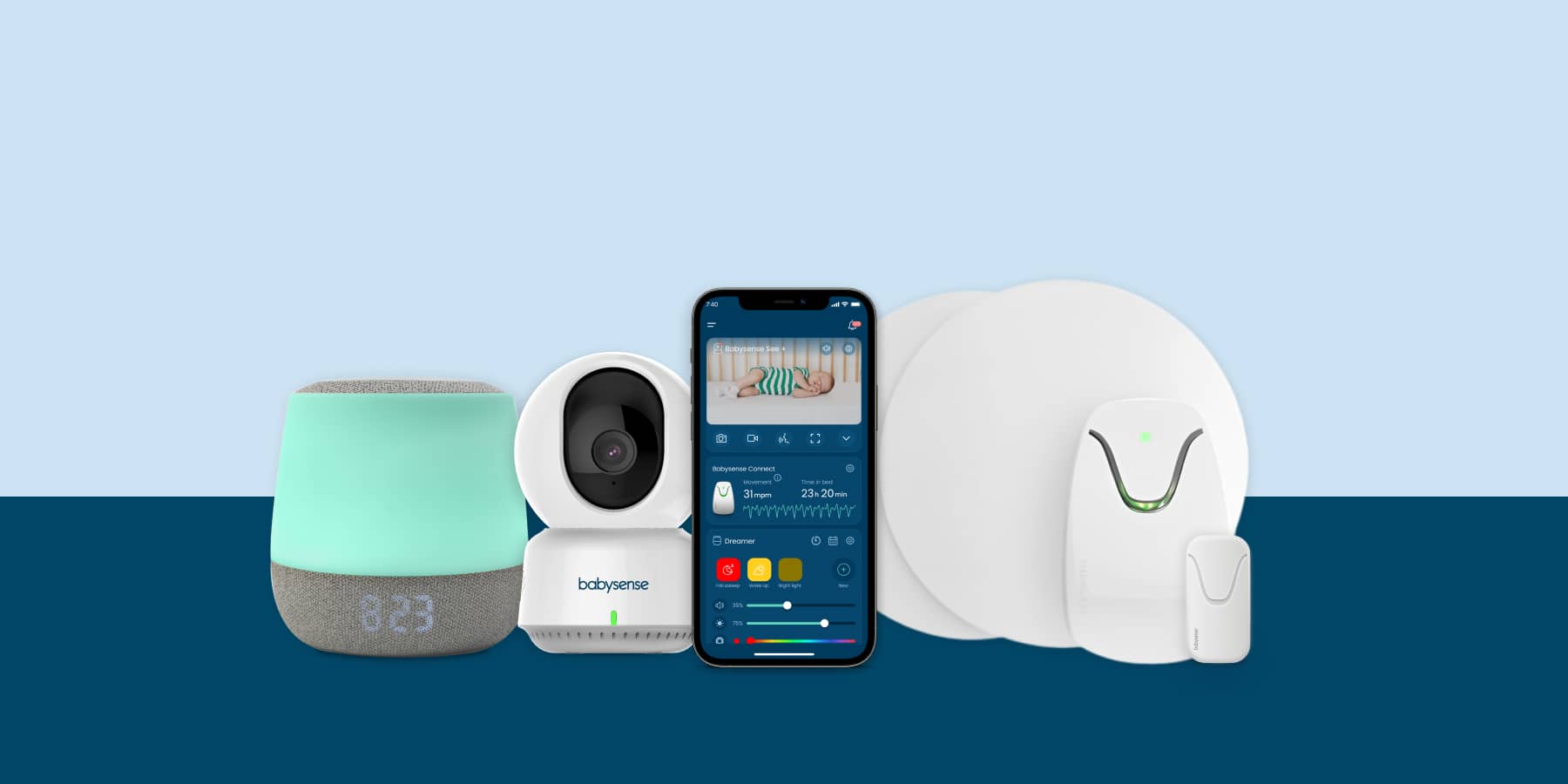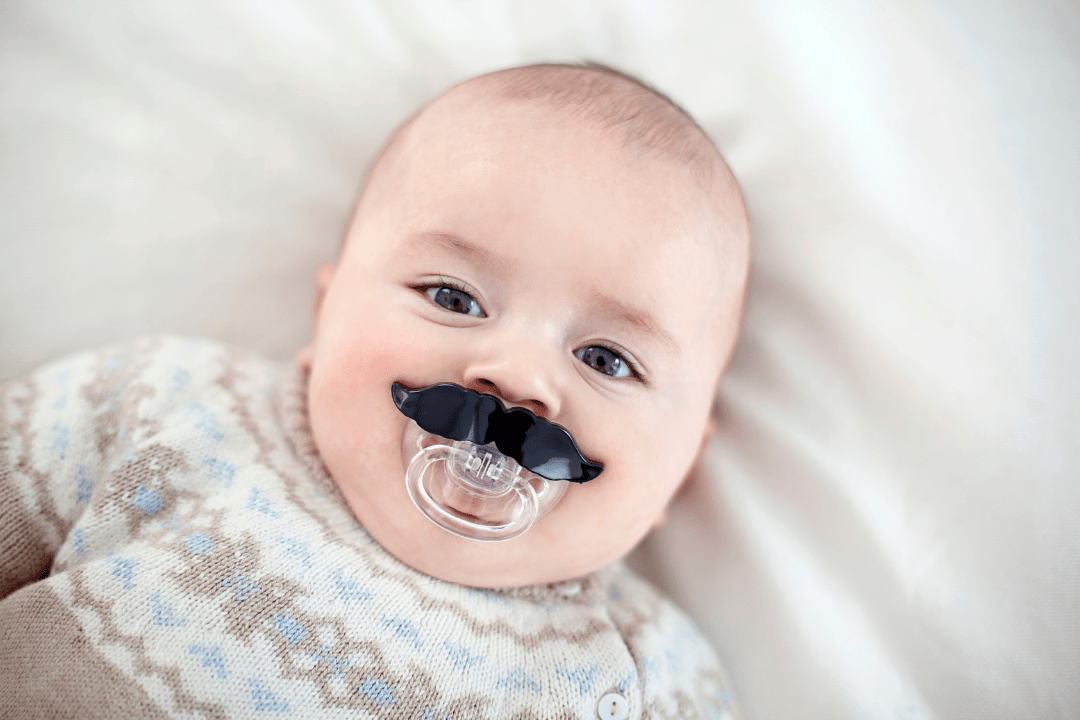If you’re a new parent, there are so many questions that you may not have anticipated. Your attention has become focused on your sweet baby’s development and their most basic needs. One of those needs is sleep and rest.
Babies grow at an astounding rate, which demands a lot of energy. That means that they need to sleep a lot to foster healthy development. That makes many parents worry about their nap schedules. When do babies go down to one nap each day? Is your baby sleeping enough? Conversely, is it possible for babies to sleep too much? If your child is sleeping too much, you can find out through our range of video baby monitors.
Let’s look at some facts and figures surrounding infants and sleep. That way, you can work with your child, family, other caregivers, and pediatrician to ensure your baby is getting enough rest.
How Much Sleep Does a Baby Need?
Let’s first clarify one crucial point: every baby is different! If your child is happy, healthy, and hitting all of their developmental milestones, that is far more important than whether they fit the norm for sleep. That being said, it can be helpful for first-time parents, especially to have an idea of the average, so let’s take a look.
Birth through 3 months
The newborn stage is when your baby needs to sleep the most. They should be spending about two-thirds of their day, or 16 hours, asleep. Few children this age sleep through the night, so while nighttime may give them their longest sleeping stretch, they should also be taking multiple naps during the day for a couple of hours each time.
Four months through five months
Infants in this age range still need a lot of sleep, though less than newborns. Aim for about 12-14 hours of sleep per day. They may develop a pattern of wakeful play and eating for about two hours, followed by another hour or so of rest. You can also expect them to sleep longer through the night, so their daytime naps become fewer.
Six months through eight months
Babies develop more individually from about six months to a year, so these ages are averages and generalities more than rules. Most infants aged 6-8 months still take two or three naps each day. If they take short naps, they may take four, but two 1.5-hour naps are normal. They should also be sleeping for longer stretches at night.
Nine months through twelve months
Babies this age are usually more solid sleepers. They can sleep for up to 12 hours overnight (aim for at least ten hours) and typically take two naps during the day for a total of three or four daytime hours. It’s not unusual for one of the naps to be shorter than the other. For example, many babies prefer a late morning one-hour nap and then sleep for two or more hours mid-afternoon.
Your One-Year-Old
Many children drop to one nap around their first birthday or in a couple of months after that. From a developmental perspective, children aged 12-16 months need less sleep than younger babies. More importantly, they can go for longer periods without eating, which allows them to sleep for more significant periods.
A significant factor for many newly-minted toddlers is if they’re enrolled in daycare. If they move out of their infant classroom around their first birthday, their new room might have a single designated nap time. Of course, most schools and teachers won’t deny a sleepy child rest, but they won’t push it, either.
Signs Your Child Is (or Is Not) Ready for One Daily Nap
The good news for parents is that babies and toddlers will tell you if they need more or less sleep. Generally speaking, your baby will show signs of either being well-rested or too tired.
If they’re well-rested and getting enough sleep, they’ll have energy for normal baby activities. Depending on their age, this includes playing games, tummy time, reaching for and grabbing toys, and exploring their environments. They won’t be unusually cranky or ill-tempered, and they’ll eat normally.
When young children are over-tired, they’ll show it. At best, they may yawn a lot and rub their eyes. At worst, they will be irritable, prone to crying or tantrums, and disengaged in growth activities, including play and even eating.
Let’s look at some other things to pay attention to when it comes to babies and sleep.
Nighttime Sleep Quality
How your child sleeps at night can be a good indication of whether they’re getting enough or too much sleep during the day. If your baby resists bedtime or frequently wakes during the night when they don’t have to eat, they’re probably sleeping too much during the day. On the other hand, their bodies and minds need movement and stimulation just as much, so they won’t sleep more than they need.
On the other hand, if they fall asleep very early and sleep well into the morning (generally more than 12 hours), they’re likely not napping enough. This is especially problematic because all children need to eat at least every 12 hours. Not to mention, a hungry and tired baby is almost sure to be cranky and fussy and prone to tantrums. That’s not fun for anyone!
The Daycare Factor
If your child attends daycare, this may have a significant impact on their sleep patterns. The transition out of the infant classroom may occur anytime, depending on your school, but when it does, that may force your child down to only one nap during the day.
This can cause significant headaches for you if your baby or toddler isn’t ready. If they’re exhausted at the end of the day and fall deep asleep on the car ride home, they’re likely to be wide awake at your desired bedtime.
Talk to your baby’s teachers or even the director of the school. They may be able to work with your child or even do more to help extend their single nap, reducing their fatigue at the end of the day. If they can’t or won’t help, you may need to wake your baby earlier in the morning to allow them to rest longer at naptime at school.
In general, no matter what their age, your daycare should have a way to communicate with you about when your baby sleeps during the day and how long they stay down. Again, your child’s teacher can be a great resource to help you gauge your infant’s readiness to go to one nap, both as the issue pertains to your child precisely and in comparison with other babies around the same age.
Times When Babies Need More Sleep
There are times when babies and young children will need more sleep than they may have previously. The first and most obvious is when they’re sick. Their little bodies have to work even harder than ours to fight off infection and sickness, as well as develop antibodies to prevent future illness.
Some babies and children will also sleep more during growth spurts. When their rate of growth is higher, their energy requirements also increase. A kiddo going through a growth spurt may also be hungrier than usual.
Most parents have heard of--even if they haven’t experienced--the dreaded sleep regression. Sleep regression is when your baby loses some of the progress they have made in sleeping through the night. Just when you thought you were done with the days of late-night wake-ups, your child is unable to stay asleep or self-soothe themselves back to dreamland.
This might be a sign that your baby is getting too much sleep during the day, or it could be something else. If it starts happening, start tracking their sleep carefully (if you aren’t already). If the pattern continues and adjusting sleep schedules during the day doesn’t help, talk to your pediatrician.
Let Your Baby Tell You
If daycare isn’t a factor and you or someone else is home with your baby during the day, give one nap a try. Let them sleep until they wake themselves in the morning, and go about your regular morning routine. Plan an early lunch (around 11:00 AM) and wind down with some books or other quiet activities afterward. Put them down when they’re ready, and let them sleep for as long as possible.
Ideally, if they stay asleep for more than two hours, they won’t need to nap again in the afternoon. So go ahead and push an earlier bedtime if you can (by 7:00 PM). Hopefully, they’ll sleep well through the night and wake up happy.
If your baby shows signs of fatigue, including yawning, rubbing their eyes, low energy, or unusual crankiness, don’t ignore what their body tells you. Sleep is one of the most important factors when it comes to their development. So if they’re able to go down to one nap around their first birthday, that’s the norm. But don’t fret if they need more or less sleep than is typical. Remember, every baby is unique, and yours is especially special!









